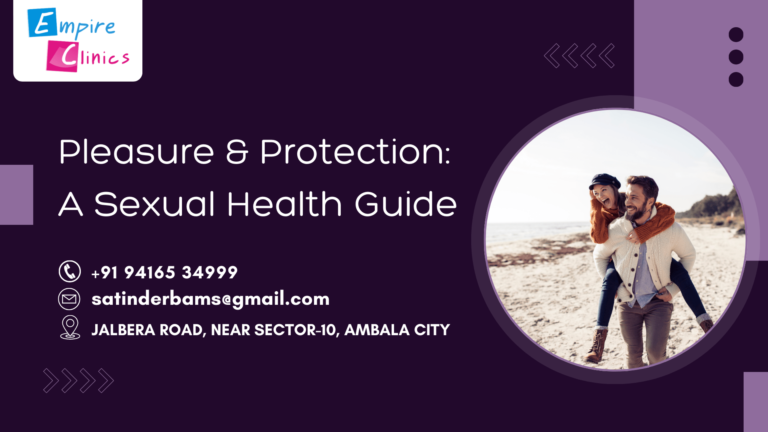Maintaining good sexual health is vital to overall well-being and involves various practices and considerations. Here is a comprehensive guide:
1. Practice safe sex
- Use of Protection: Always use condoms or other barrier methods to reduce the risk of sexually transmitted infections (STIs) and unintended pregnancy.
- Get regular STD tests: Regular checkups are important, especially if you have multiple partners or are starting a new relationship. It helps in early detection of infections and prevents transmission.
2. Contact your partner
- Discuss Sexual Health: Have open conversations with your partners about your sexual history, STD status, and protection methods.
- Set Boundaries: Communicate your boundaries clearly and respect your partner’s boundaries. Consensus and mutual understanding are key.
3. Maintain Good Hygiene
- Cleanliness: Wash the genital area regularly with mild, unscented soap and water. Avoid showers or scented products as they can disrupt the natural flora.
- After sex: Urinate after sex to help flush out bacteria and reduce the risk of urinary tract infections (UTIs).
4. Understand your body
- Regular checks: Visit your health care provider for regular sexual health checkups and screenings. This includes gynecological exams for women and prostate exams for men.
- Know your circle: For those who have a menstrual cycle, understanding your cycle can help manage health and identify any abnormalities.
5. Be aware of STDs
- Know the symptoms: Be aware of common STD symptoms, such as unusual discharge, itching or sores. However, many STDs can be asymptomatic.
- Seek treatment early: If you suspect an STD, seek medical help immediately. Early treatment can prevent complications and transmission to others.
6. Practice healthy lifestyle habits
- Healthy Diet: Eat a balanced diet rich in fruits, vegetables and whole grains to support overall health.
- Exercise regularly: Regular physical activity helps maintain a healthy body and can improve sexual function.
- Avoid substance abuse: Excessive use of alcohol or drugs can impair judgment and increase risky sexual behavior.
7. Manage stress and mental health
- Stress management: Practice stress reduction techniques such as meditation, yoga or deep breathing. High levels of stress can affect sexual desire and sexual function.
- Mental Health: Seek support for mental health issues, as conditions such as depression or anxiety can affect sexual health and relationships.
8. Educate yourself
- Sexual Education: Stay informed about sexual health topics, including contraception, STD prevention, and sexual function.
- Look for reliable sources: Use trusted sources for sexual health information, such as health care providers or recognized health organizations.
9. Consider your birth control options
- Explore the methods: There are several contraceptive methods available, including hormonal (pills, patches), barrier (condoms, diaphragms), and long-term options (IUDs, implants).
- Consult a Professional: Talk to a healthcare provider to choose the best method based on your health and lifestyle.
10. Promoting healthy relationships
- Emotional Connection: A strong emotional connection with your partner can enhance sexual satisfaction and the overall quality of the relationship.
- Mutual Respect: Make sure your relationship is based on mutual respect, trust and understanding.
11. Treatment of Sexual Dysfunction
- Seek help if needed: If you are experiencing sexual dysfunction (eg, erectile dysfunction, low libido), consult a healthcare provider for evaluation and treatment options.
- Treatment options: Sex therapy or counseling can help address psychological or relationship issues that affect sexual health.
12. Stay up to date on vaccinations
- HPV vaccine: The human papillomavirus (HPV) vaccine can prevent some types of HPV that cause genital warts and some cancers.
- Hepatitis vaccines: Vaccines are available for hepatitis A and B, which can be sexually transmitted.
Have any question about sexual health, Contact now
Get in touch now
Maintaining good sexual health involves a combination of safe practices, open communication, regular medical examinations and healthy lifestyle options. By staying informed and proactive, you can ensure a healthier and more fulfilling sex life.
Pleasure and Protection: The Essential Guide to Sexual Health

